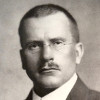“ only nature can understand itself: only nature can fathom itself ”
Arthur Schopenhauer, The World as Will and Representation (1819). copy citation
| Author | Arthur Schopenhauer |
|---|---|
| Source | The World as Will and Representation |
| Topic | understanding |
| Date | 1819 |
| Language | English |
| Reference | |
| Note | Translated by R. B. Haldane and J. Kemp |
| Weblink | http://www.gutenberg.org/files/38427/38427-h/38427-h.html |
Context
“The possibility of such an anticipation of the beautiful a priori in the artist, and of its recognition a posteriori by the critic, lies in the fact that the artist and the critic are themselves the “in-itself” of nature, the [pg 288] will which objectifies itself. For, as Empedocles said, like can only be known by like: only nature can understand itself: only nature can fathom itself: but only spirit also can understand spirit.54
The opinion, which is absurd, although expressed by the Socrates of Xenophon (Stobæi Floril, vol. ii. p. 384) that the Greeks discovered the established ideal of human beauty empirically, by collecting particular beautiful parts, uncovering and noting here a knee, there an arm, has an exact parallel in the art of poetry.”
source



